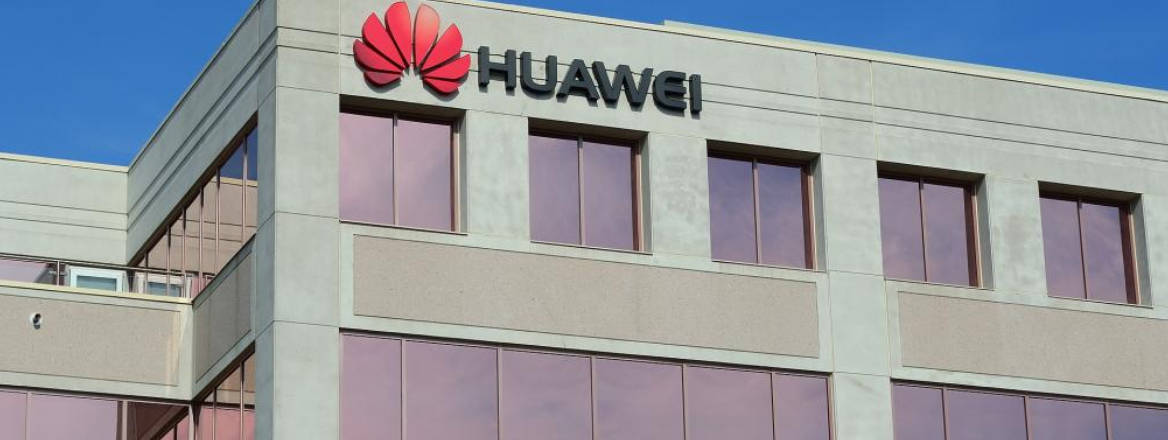US and China: Trade, Technology Theft and Arrests
A clear differentiation is required between trade and technology wars, Huawei and politicised arrests of foreign nationals. The Chinese Communist Party (CCP) is deliberately confusing them, and President Trump is not helping.
While falling short of Shakespeare’s ‘confusion now hath made his masterpiece’, between them, US President Donald Trump and Chinese leader Xi Jinping have not done badly at sowing confusion in three different fields:
- Tariffs, trade wars, technology and trade-level playing fields.
- Huawei, national security and 5G telecommunication systems.
- The politically-charged arrests (to put it euphemistically) of Canadians Michael Kovrig and Michael Spavor, in retaliation for the arrest of Meng Wanzhou, the Chief Financial Officer of Huawei, who faces Canadian court hearings for extradition to the US in February.
To card out the separate strands.
First strand. Imposing tariffs in the hope of curing trade deficits shows economic illiteracy: deficits occur because Americans consume more than they save. But Trump does have a point about theft of technology, intellectual property protection and China’s maintenance of a non-level playing field for trade and investment. Europeans and Japanese support him in these areas, but they take care not to confuse them with trade deficits or to use tariffs as leverage for genuine grievances.
Second strand. Opposition to Huawei’s involvement in the 5G telecommunications systems of liberal democracies is not about curtailing China’s technological, and thereby broader, rise. As a side-effect, that might please some in the US, it is certainly not an issue for the UK and the EU, where Huawei’s performance and likely competitive pricing are well received and where a possible refusal to use the company for 5G on national security grounds will no doubt come with political and other costs as well.
But the national security case is unanswerable: whether for the US, Australia and others who have ruled out Huawei’s participation in national tendering projects, or for the UK, it would be irresponsible to give a potentially hostile power the ability to threaten to or actually close down one’s critical national infrastructure, since 5G will control more than just telecommunications. In the UK’s case, the additional risk of damage to the country’s Five Eyes intelligence arrangements would be enormous, since other ‘Eyes’ partners would be reluctant to share material with a country which could not guarantee uncompromised telecommunications.
The third strand in this affair relates to politically charged imprisonment of foreign nationals. The CCP has form. Two years ago it incarcerated two Canadians for 14 months on national security charges; this followed the arrest in Canada of a Chinese who later pleaded guilty in the US to charges of espionage. This time it has seized two Canadians on the same charge. That this is connected to Meng was ineptly (or perhaps deliberately) made clear by the Chinese ambassador in Ottawa in an op-ed, which specifically linked Kovrig’s detention with the Meng case.
Trump has been accused of many things; clarity, consistency, logic and legal understanding are not among them. The president’s statement that he might intervene in the Meng case to help trade or national security was roundly and rightly condemned in the US, for it undermines the rule of law, which is incompatible with government interference in the judiciary. And it also embarrasses Canada, which has argued all along that the legal procedures against Meng are not politically motivated or linked.
Still, none of this is proof that Meng’s arrest was an orchestrated plan related to current trade confrontations. Indeed, the legal work and decisions behind it must have been made before the ‘trade war’ was ramped up in mid-2018, and its timing was dictated by Meng’s transiting of a country where the law could be enforced. That, of course, is not to say that many in the US administration are not happy at hobbling Huawei and at taking advantage of what has happened, or might not rejoice at encouraging further investigations of Chinese legal infringements. The mood in Washington has turned; it is not just Trump and his ilk who have lost patience with the effect of the CCP’s systems and policies on American interests.
As for the CCP, its controlled media has made it clear that this is all part of a conspiracy aimed at thwarting China’s rise. Its main newspaper The People’s Daily said that, ‘[t]o arrest someone without offering a clear reason is an undisguised infringement upon the human rights of that person’. And that ‘[t]he only way to avoid paying a much heavier price is for the Canadian side to correct this error’. Meanwhile those ‘shameful people’ attacking Huawei are ‘ultimately dropping a stone onto their own feet’.
The CCP simply cannot, or is not willing to, get its mind around issues which result from following rule of law. When Beijing calls the arrest of Meng ‘vile’ and ‘geopolitical’, it demonstrates its lack of attachment to law. It also makes for hideous hypocrisy: the CCP kidnapped Swedish citizen Gui Minhai from Thailand. His crime was publishing books; Meng’s is alleged bank fraud. There is a difference. The CCP might be on stronger ground if it attacked America for its application of American law in third countries, but that has not been its main argument. Although, there is a strong case for saying that anyone who avails themselves of the services of banks based in the US or in US dollars must abide by the rules of the US.
But is deliberately blurring the three strands and causing tension with the US not at risk of dropping a stone on the CCP’s feet as well? To revisit the three strands above:
- There are good arguments for suggesting that it is in Beijing’s own interests to create a level playing field for trade and investment. Without it, both will decline, while Chinese companies will become less competitive. From the CCP’s vantage point, it would also help put clear water between the EU and the US over China (a halt to theft of commercial secrets would also help).
- The CCP must accept that Huawei will not be playing a role in the 5G systems of liberal democracies, just as China keeps western companies out of its systems. Issues of national security must not harm wider cooperation, not just in trade and investment, but in a plethora of other areas such as climate change, pollution, global health, humanitarian assistance, peacekeeping.
- The CCP must stop acting in a way which undermines the rule of law. The message of politicised imprisonments is chilling for governments and individuals: if there is a crisis between China and your country, you are at risk of being seized. Not only does this lawless behaviour give the lie to its line on ‘a shared future for mankind’, or the China model being good for the world, it will also slow the exchange of people, business and ideas, to China’s loss. ‘Win-win’, anyone?
Immediately after the seizing of Kovrig, the author was asked by several people if it was safe to travel to China that weekend. His answer? Yes, but only until the UK offends China. If, for example, Peter Humphrey succeeds in his case with Ofcom to ban China Central Television from operating in the UK because of its role in his interrogation and torture during his detention, the author, for one, will not be visiting China.
Charlie Parton is an Associate Fellow at RUSI, an ex-diplomat and friend of the Canadian diplomat Michael Kovrig who was seized by the CCP in December.
The views expressed in this Commentary are the author’s, and do not necessarily reflect those of RUSI or any other institution.
WRITTEN BY
Charles Parton OBE
RUSI Senior Associate Fellow, International Security


